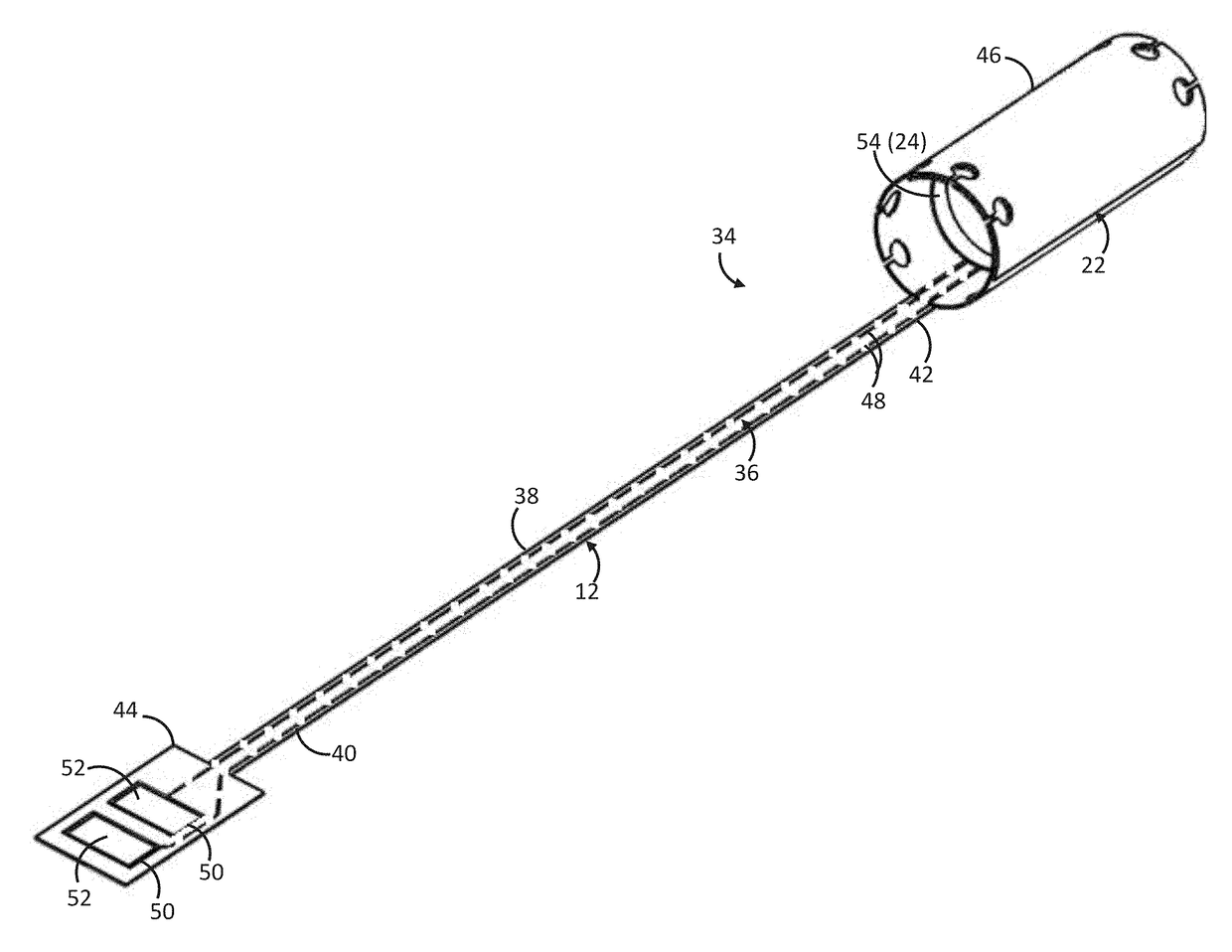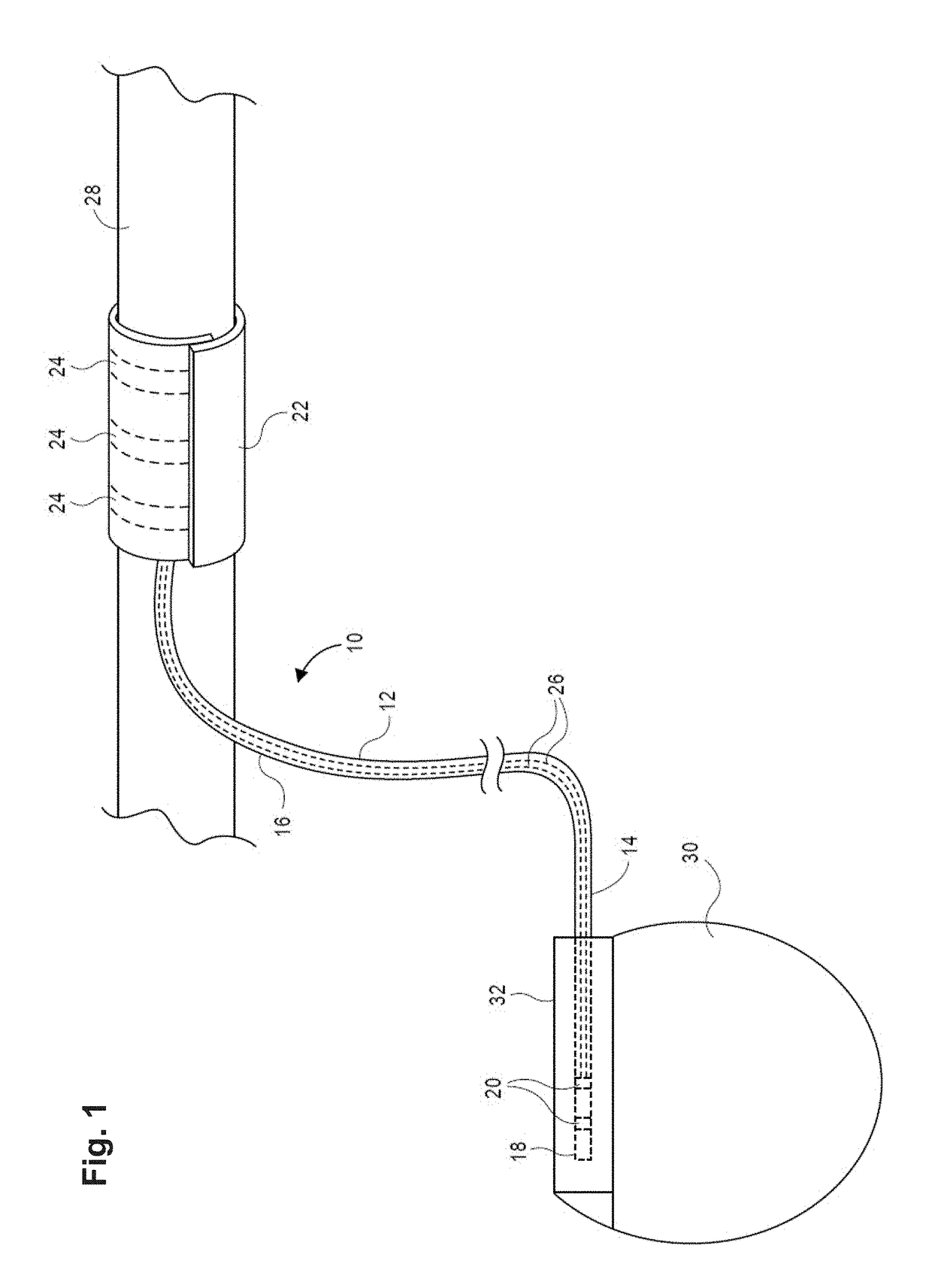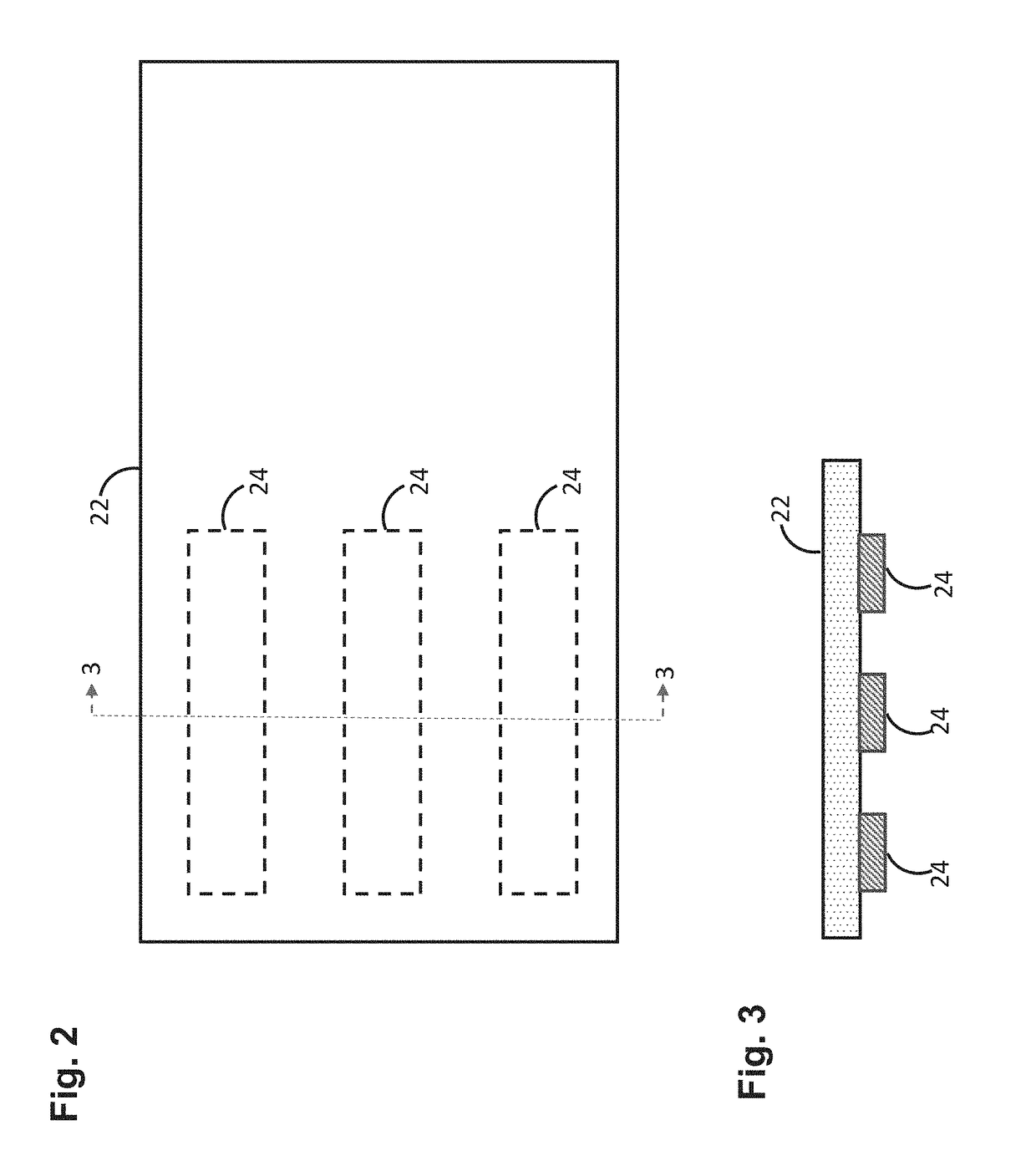Nerve cuff electrodes fabricated using over-molded lcp
a nerve cuff electrode and over-molded technology, applied in the field of implantable nerve cuff electrodes, can solve the problems of increasing the final cost of the finished product, time and labor, and the method of making these nerve cuff electrodes is typically time-consuming and labor-intensiv
- Summary
- Abstract
- Description
- Claims
- Application Information
AI Technical Summary
Benefits of technology
Problems solved by technology
Method used
Image
Examples
Embodiment Construction
[0078]Referring first to FIGS. 1-3, an electrode lead 10 constructed in accordance with one embodiment of the present inventions will now be described. The electrode lead 10 may be used for any medical treatment where it is desired to stimulate a nerve and / or record physiological signals from a nerve or surrounding tissue.
[0079]The electrode lead 10 generally comprises an elongated planar lead body 12 having a proximal end 14 and a distal end 16, a lead connector 18 affixed to the proximal end 14 of the lead body 12, at least one lead connector contact 20 (two shown) disposed on the lead connector 18, a planar electrode carrying structure 22 affixed to the distal end 16 of the lead body 12, at least one electrode contact 24 (three shown in phantom in FIG. 1) disposed on the electrode carrying structure 22, and at least one electrical conductor 26 (two shown) extending through the lead body 12 between the lead connector contacts 20 and the electrode contacts 24. For the purposes of t...
PUM
 Login to View More
Login to View More Abstract
Description
Claims
Application Information
 Login to View More
Login to View More - R&D
- Intellectual Property
- Life Sciences
- Materials
- Tech Scout
- Unparalleled Data Quality
- Higher Quality Content
- 60% Fewer Hallucinations
Browse by: Latest US Patents, China's latest patents, Technical Efficacy Thesaurus, Application Domain, Technology Topic, Popular Technical Reports.
© 2025 PatSnap. All rights reserved.Legal|Privacy policy|Modern Slavery Act Transparency Statement|Sitemap|About US| Contact US: help@patsnap.com



